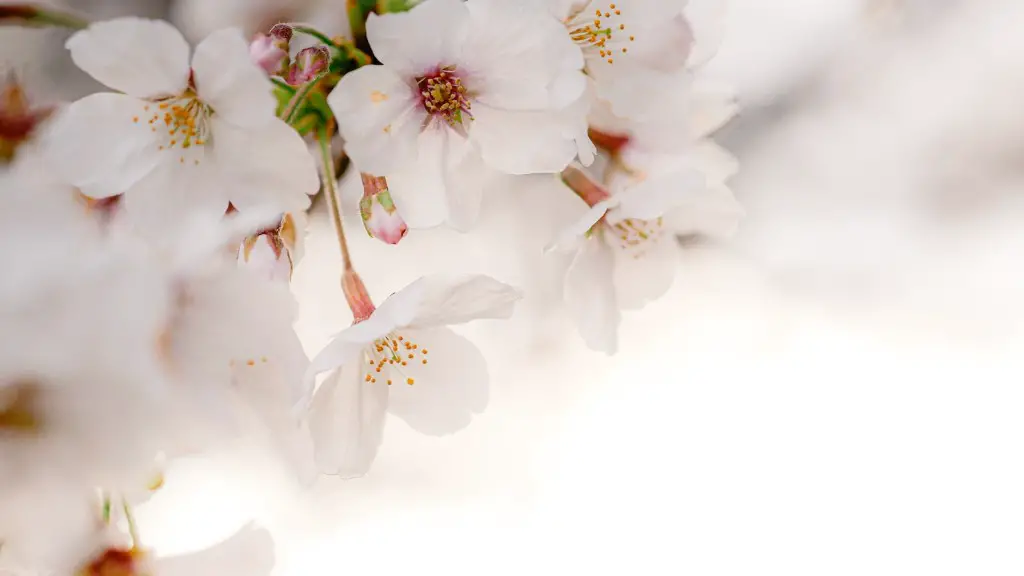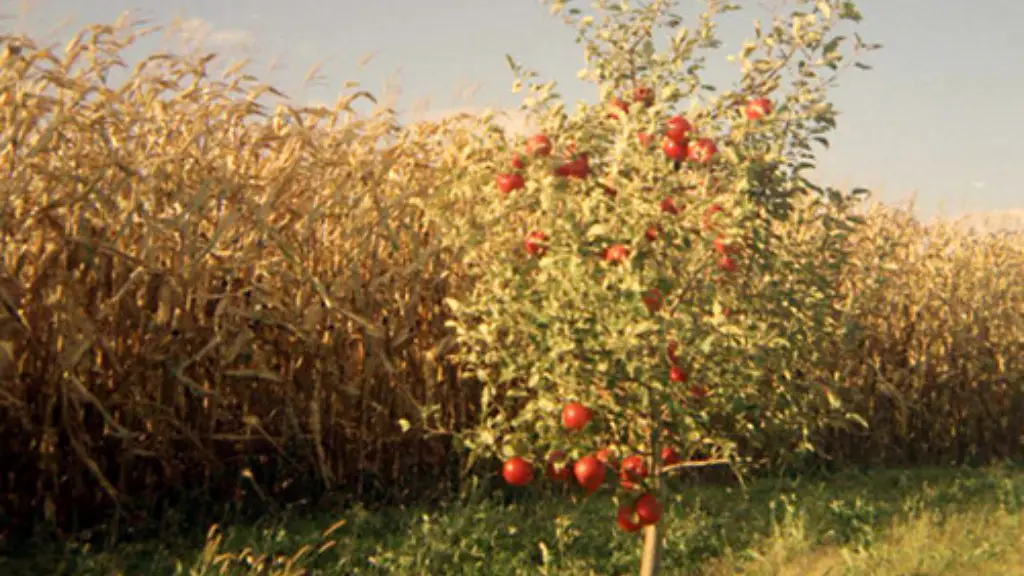What Are The Different Types of Sprays I Can Use on My Cherry Tree?
Cherry trees can benefit from the application of sprays to control insect pests and diseases, and to keep the fruit juicy, plump and delicious. It is important to choose the correct type of spray for the job, as some are better than others at controlling certain insects or fungi. The following are some of the most common types of sprays used on cherry trees:
Organic Sprays
Organic spray methods are popular as they are considered to be safe for the environment and human health. Organic sprays are usually more natural, such as neem oil, garlic, hot pepper, or soap/oil sprays. They are usually cheaper than chemical sprays and can be used as a preventative measure or curative treatment for pests and diseases. The drawback to organic sprays is that they don’t always offer the same level of control as chemical sprays.
Chemical Sprays
Chemical sprays, or synthetic sprays, are widely used to control insects and disease on cherry trees. Some of these are broad-spectrum sprays, which means they will kill a variety of insects, while others are specific to one type, such as a fungicide or an insecticide. Chemical sprays are generally more effective against a wider range of insects and diseases, but they can also be more harmful to the environment and human health.
Homemade Sprays
Homemade sprays can be a good way to save money and to control pests and diseases on your cherry tree. There are many recipes available online for homemade sprays, such as garlic, soap and oil sprays. It is important to test homemade sprays before spraying a large area of your tree, as some of the recipes can be unsafe for the environment and human health.
Systemic Sprays
Systemic sprays are an effective way of controlling pests and diseases on cherry trees, as the spray works by being absorbed into the plant and will reach the area of infection or infestation. Systemic sprays are generally more expensive than other types of sprays, but they can provide long-term protection against pests and diseases.
Fungicides
Fungicides are sprays specifically used to control fungal diseases, such as powdery mildew, on cherry trees. Fungicides are typically applied to the foliage of the tree and will penetrate the leaf and prevent or stop the spread of the disease. Fungicides can also be used as a preventive measure, to protect the tree from further infection.
Insecticides
Insecticides are used to control insect pests on cherry trees, such as aphids, mites and Japanese beetles. Insecticides can be applied to the foliage or trunk of the cherry tree, and will kill the insects on contact. Insecticides can also be used as a preventative measure to keep the pests from infesting the tree.
When Should I Spray My Cherry Tree?
When spraying a cherry tree, it is important to use the correct type of spray at the right time. Different types of sprays or insecticides will have different application times, and it is important to follow the instructions carefully. Generally, the best time to spray is in the early morning, when the sun isn’t too hot and the winds are still low. It is also important to avoid spraying in windy conditions, as this can lead to the spray being blown away.
How Often Should I Spray My Cherry Tree?
It is important not to overdo pest and disease control, as this can lead to an imbalance in the natural environment, so it is not recommended to spray your cherry tree every week. How often you spray your tree will depend on the type of spray and pests or diseases you are trying to control. Some sprays can be used multiple times a season, such as fungicides for powdery mildew, while insecticides can usually be sprayed in the early, mid and late part of the season.
Is Spraying Poisonous to Humans, Pollinators or other Animals?
Spraying can be toxic to humans, pollinators and other animals, so it is important to follow the instructions carefully. Make sure to keep pets and children away from the area when spraying and to wear protective clothing and a mask. It is also important to avoid spraying during Bloom, as this can harm pollinating insects.
Is Spraying Harmful to the Environment?
Spraying should always be done with care, as some sprays can be toxic to the environment. Follow the instructions carefully and only use the amount of spray that is recommended. Avoid spraying in windy conditions, as this can result in the spray being blown onto nearby plants or into the air.
What Are The Benefits of Spraying My Cherry Tree?
Spraying your cherry tree can have many benefits, including: Protection against pests and diseases; Improved fruit quality; and Enhanced growth. Spraying can help to ensure your cherry tree continues to be healthy and productive for many years to come.
How Do I Know if My Cherry Tree Needs Spraying?
If you suspect that your cherry tree may have pests or diseases, it is important to inspect the tree regularly and to look out for the signs. These signs can include: Discolored or wilted leaves; Excessive insect or fungal activity; and Damage to the fruit or bark. If you detect any of these signs, you should consider spraying your cherry tree as soon as possible.
What Other Steps Should I Take To Protect My Cherry Tree?
In addition to spraying your cherry tree, there are a few other steps you can take to protect it from pests and diseases. These steps include: Regular pruning to remove pests and dead branches; Mulching to reduce weed growth and keep the tree healthy; and Provide adequate water and nutrients for optimum growth. Taking these steps will ensure your cherry tree remains healthy and productive.


